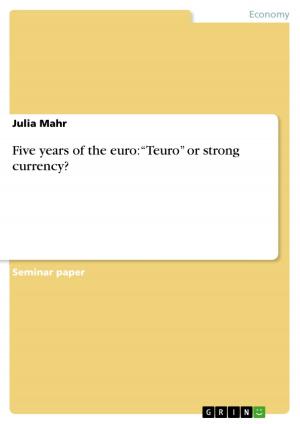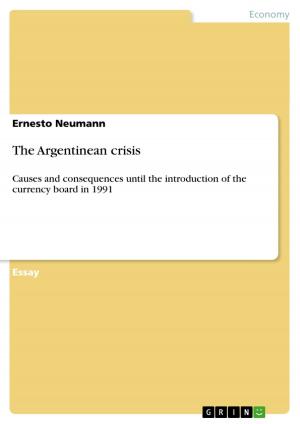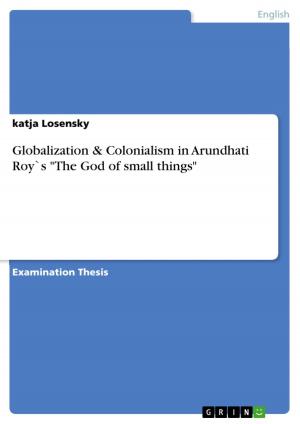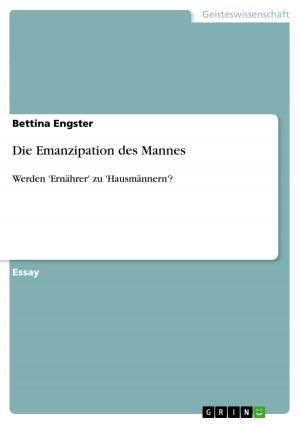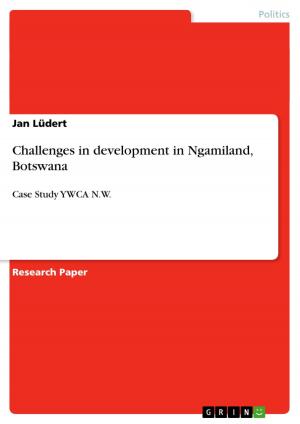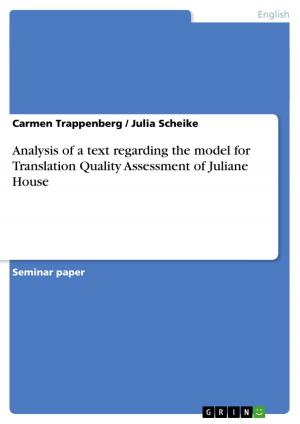The success of political transition in Estonia, Czech Republic and Romania
Nonfiction, Social & Cultural Studies, Political Science, International, International Relations| Author: | Christian Vogel | ISBN: | 9783638755573 |
| Publisher: | GRIN Publishing | Publication: | June 8, 2007 |
| Imprint: | GRIN Publishing | Language: | English |
| Author: | Christian Vogel |
| ISBN: | 9783638755573 |
| Publisher: | GRIN Publishing |
| Publication: | June 8, 2007 |
| Imprint: | GRIN Publishing |
| Language: | English |
Seminar paper from the year 2005 in the subject Politics - International Politics - Region: Eastern Europe, grade: 1,0, University of Tartu (Center of Baltic Studies), course: Post-communist transition and Estonian experience, 29 entries in the bibliography, language: English, abstract: 1. Introduction After having discussed major theoretical approaches regarding political transition as far as post-communist countries are concerned in the first stage, it is due to fill this theoretical framework with examples and figures. Being aware of some common steps every country, which finds itself in a transitional process, has to undertake in order to establish a functioning democracy, the theory also shows that the course as well as the success towards the before said goal might be completely different. Against this background, the main aim of the current research is a comparison of three former communist states, namely Estonia, Czech Republic and Romania, regarding their progress of the transitional process up to the present moment, thereby mainly focusing on political aspects. In doing so, one has to realise that the evaluation of political transition is much more complicated than assessing economical transition for example, because neither success nor failure of can be just displayed in figures as it might be possible for economical issues. However, theory has been proofing that one can not assess developments of countries in transition while only focusing on economical outcomes. Even the neo liberal hardliner and American scientist and philosopher Francis Fukuyama has been admitting in his recent publication 'States-Building', that creating states under the rule of law is even more important than free markets . In respect to that, this work tries to use the few measures existing in order provide an objective comparative analysis. In addition to that it should be evaluated in what way the opportunity to join international organisations (NATO and especially the European Union) has been boosting political transition in the above mentioned countries. Moreover it should be found out whether there is a connection between successful transition and deeper European integration. For that matter, the first part compares general developments of political transition. The second part is analysing developments of the three countries regarding their way towards NATO and EU accession, which has in fact both become reality for Estonia and ?R. The last part tries to provide a conclusion about the outcomes of the (political) transition process as well as to point out remaining problems which are still due to resolve.
Seminar paper from the year 2005 in the subject Politics - International Politics - Region: Eastern Europe, grade: 1,0, University of Tartu (Center of Baltic Studies), course: Post-communist transition and Estonian experience, 29 entries in the bibliography, language: English, abstract: 1. Introduction After having discussed major theoretical approaches regarding political transition as far as post-communist countries are concerned in the first stage, it is due to fill this theoretical framework with examples and figures. Being aware of some common steps every country, which finds itself in a transitional process, has to undertake in order to establish a functioning democracy, the theory also shows that the course as well as the success towards the before said goal might be completely different. Against this background, the main aim of the current research is a comparison of three former communist states, namely Estonia, Czech Republic and Romania, regarding their progress of the transitional process up to the present moment, thereby mainly focusing on political aspects. In doing so, one has to realise that the evaluation of political transition is much more complicated than assessing economical transition for example, because neither success nor failure of can be just displayed in figures as it might be possible for economical issues. However, theory has been proofing that one can not assess developments of countries in transition while only focusing on economical outcomes. Even the neo liberal hardliner and American scientist and philosopher Francis Fukuyama has been admitting in his recent publication 'States-Building', that creating states under the rule of law is even more important than free markets . In respect to that, this work tries to use the few measures existing in order provide an objective comparative analysis. In addition to that it should be evaluated in what way the opportunity to join international organisations (NATO and especially the European Union) has been boosting political transition in the above mentioned countries. Moreover it should be found out whether there is a connection between successful transition and deeper European integration. For that matter, the first part compares general developments of political transition. The second part is analysing developments of the three countries regarding their way towards NATO and EU accession, which has in fact both become reality for Estonia and ?R. The last part tries to provide a conclusion about the outcomes of the (political) transition process as well as to point out remaining problems which are still due to resolve.


